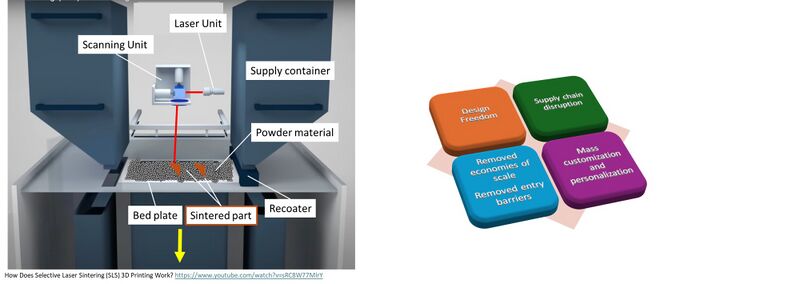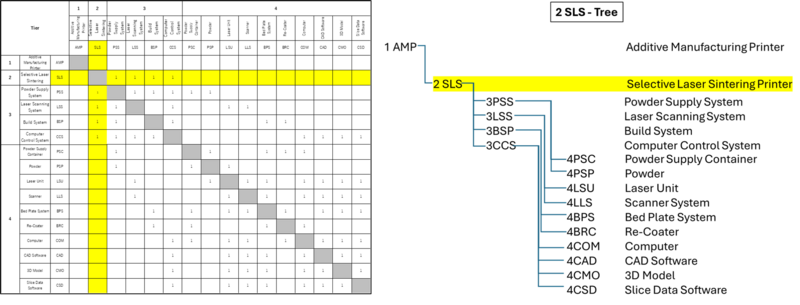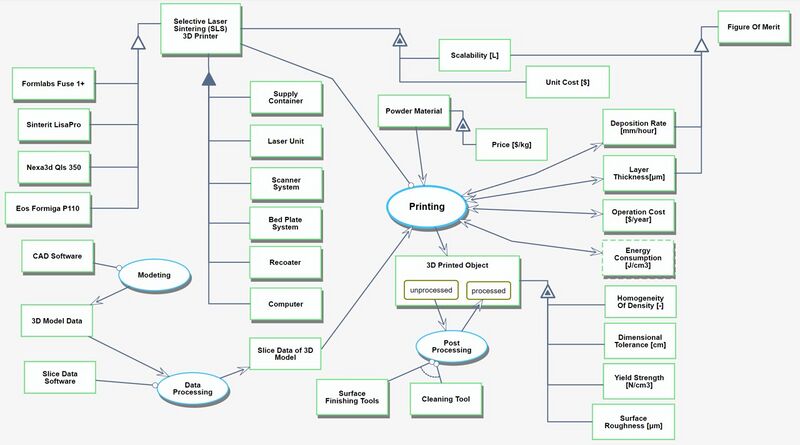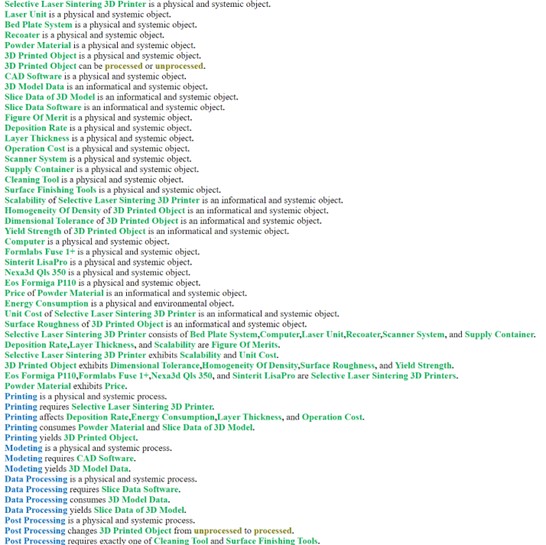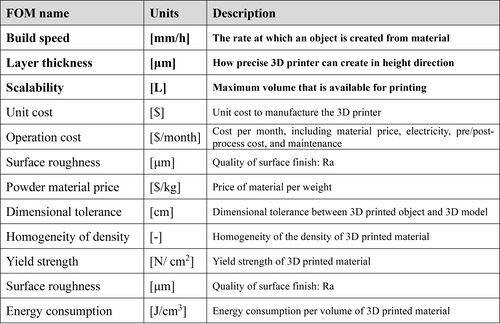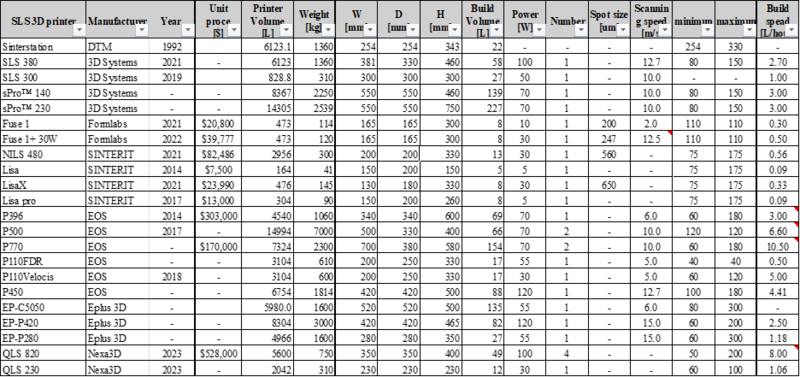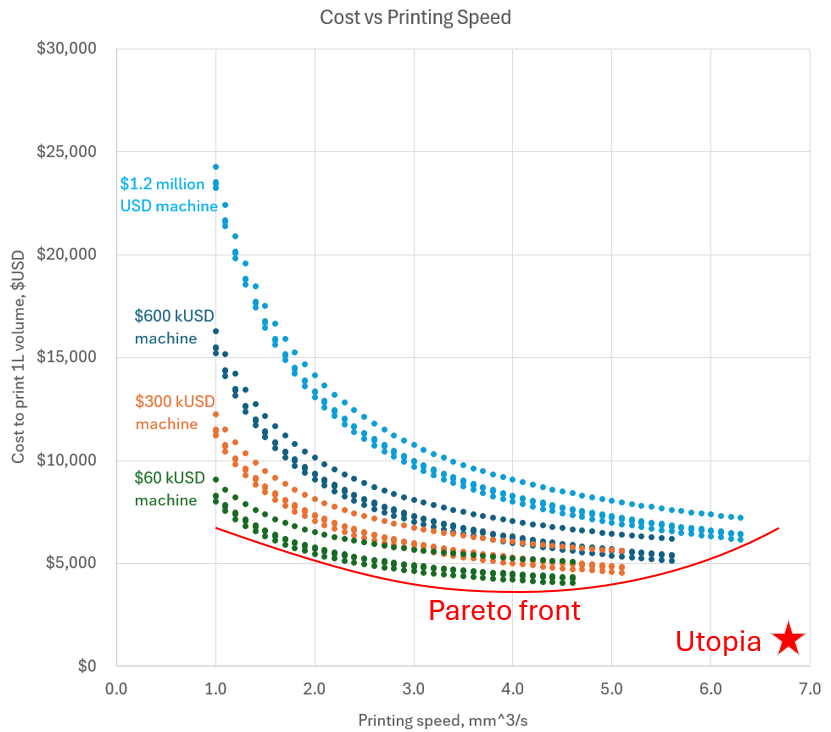Selective Laser Sintering
Roadmap Overview
3D printing, or additive manufacturing, is a disruptive innovation transforming traditional manufacturing. Unlike subtractive methods, which remove material from a large block, 3D printing builds parts layer by layer, creating intricate designs previously impossible to manufacture. This technology has significantly reduced the time and complexity involved in assembly, allowing parts to be made on demand without sourcing from distant suppliers. By streamlining the prototyping process, 3D printing accelerates innovation and lowers costs, enhancing customer satisfaction and reducing product development waste. This technology has also changed cost structures in manufacturing by eliminating the need for large-scale, non-recurring investments in molds, tools, and setups. Industries such as aerospace, automotive, and healthcare have benefited from 3D printing's ability to produce lightweight, complex designs, like Pratt & Whitney's Geared Turbo Fan engine components and GE's 3D-printed fuel nozzles. With its potential to minimize waste and support sustainability, 3D printing continues to disrupt supply chains and enable mass customization across various sectors.
Design Structure Matrix (DSM) Allocation
Roadmap Model using OPM
We provide an Object-Process-Diagram (OPD) of the 2SLS roadmap in the figure below (Fig.4-1). This diagram captures the main object of the roadmap (SLS 3D printing), its various instances that are famous in the industry, its decomposition into subsystems (laser unit, supply container, bed plate system …), its characterization by Figures of Merit (FOMs) as well as the main 3D printing processes (modeling, printing, post-processing).
An Object-Process-Language (OPL) description of the roadmap scope is auto-generated and given below.
Figures of Merit
The below shows a list of FOMs by which SLS 3D printing can be assessed. Since we focus on applying this technology to industry, cost, time, and precision are critical factors.
Alignment with Company Strategic Drivers
The table below shows an example of potential strategic drivers and alignment of the 2SLS technology roadmap with it.
Positioning of Company vs. Competition
The table below compiles information on SLS 3D printers from leading 3D printer manufacturers. Confidential information has been left blank. The tradespace for unit cost and build speed, using valid data, is shown below.
Technical Model
The following figure presents the trade space of unit printing cost of Alloy 718 using SLS. It shows how the printing cost varies with parameters including printing speed, powder cost as per particle size, and printer cost. The data points for different powder costs with different particle sizes are clustered for each different model of printers.
